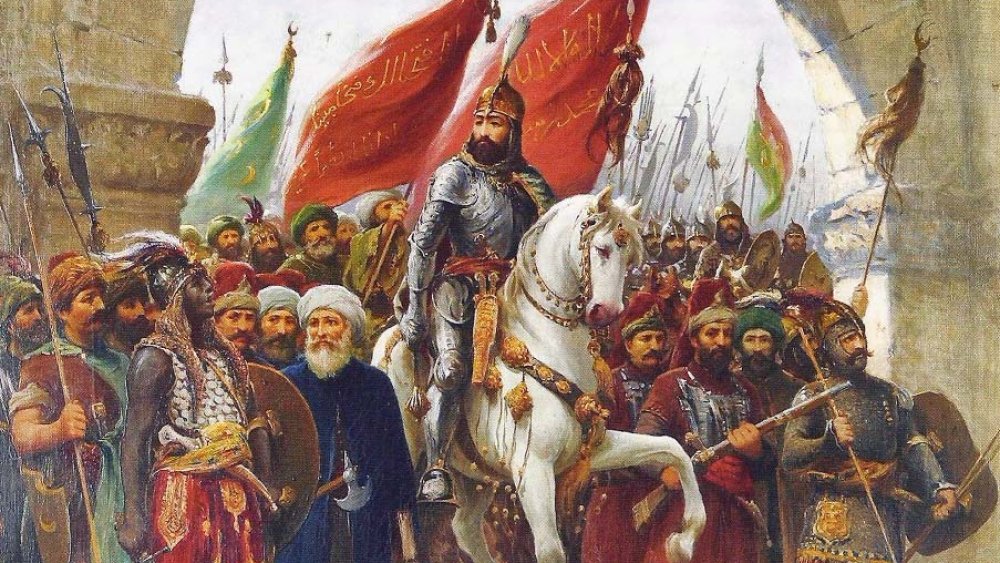We Now Understand Why The Byzantine Empire Fell
It's tempting to call the fall of the Byzantine Empire, well, byzantine, and then call it a day because life's too short for excessive complexity. Or maybe call it a lot of days, because just as the Western Roman Empire crumbled after decades of obvious decline, via the Ancient History Encyclopedia, the Byzantine or Eastern Roman Empire, took its time to die. However, their declines had different timelines and underlying causes.
Initially, it seemed like the Byzantine Empire was bound to escape the bleak fate of its western half, and for centuries, it did. Whereas barbarians bombarded the Western Roman Empire during the Gothic Wars, Rome's eastern counterpart was a much tougher target, according to History. It had stronger defenses and was less geographically exposed. Moreover, the Byzantines boasted greater political stability, and wielded more control over its coffers, preventing the currency-crippling inflation that plagued Rome. So even as the 476 implosion of Rome ushered in the so-called Dark Ages, the Byzantine had more centuries of sunshine to look forward to. So what ultimately slayed the beast in the East?
The original East Coast/West Coast rivalry
As the old adage goes, all roads lead to Rome, and for the Byzantine Empire, that included the road to hell. As History and the Ancient History Encyclopedia explain, the Crusades dealt a devastating blow to the Byzantine capital of Constantinople. By the time hell broke loose between Christians and Muslims in 1096, Rome had been resurrected as the Holy Roman Empire, which teamed with the Byzantines. But animosity brewed between the Christian factions.
The Holy Romans saw the Byzantines as heathens — "decadent, shifty, and untrustworthy" and "suspect" in their religious traditions. The Encyclopedia Britannica adds that the Westerners blamed the Byzantines for the failure of the Third Crusade. This mounting animosity culminated in the Fourth Crusade. Western Christians sacked Constantinople in 1204 and established a Latin regime. Resented by the Byzantines by conflict, the Latins had an unsteady grip on power and were overthrown in 1261. The Latins were supplanted by Byzantine exiles, who inherited an economically depleted Empire. Increasingly at the mercy of the Ottoman Turks, they lost ground and sovereignty to the Muslims. In 1453, Mehmed II — the sultan who ultimately vanquished Vlad the Impaler — completed the Muslim conquest of Constantinople.

